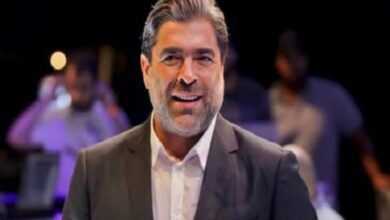Arab youth struggle with religious values and institutions trapped in the past

On the one hand, they reveal that young Arabs are aware of and educate themselves on matters surrounding their faith. On the other, the results bring to light an intellectual dilemma plaguing this generation.
What the survey shows us is that the young remain conflicted between their affinity and commitment to their faith, and those developments that have transformed human life and which seem at odds with their intellectual heritage.
This intellectual crisis is deep, especially among young Muslims, who make up the vast majority of the faithful in the Middle East.
We see that young Arabs remain attached and devoted to their faith despite being unconvinced of some of the inherited thoughts and religious strictures, which discourage individual thought and which force youth to live within the confines of Halal and Haram – what is permissible and what is forbidden.
These dos-and-don’ts do not necessarily refer to what Allah inscribed in the Holy Qur’an, but rather to rules set by religious scholars who consider themselves enforcers of His word.
Upheaval
This generation of Arabs grew up in the midst of a far-reaching civilizational upheaval with access to increasingly advanced technologies. This allowed them to keep pace with worldwide developments, opening their minds to virtually all cultures and civilizations.
Consequently, the religious cultural heritage of Muslim Arabs, which was formulated in the 7th Century, lost its relevance to them, leading them to live in a state of confusion as they constantly contrast between what they were taught at home and current enlightenment and knowledge. It would be easy for them to resolve their confusion by simply renouncing their faith, however, they have refused to do so.
Instead, they hold on to their religion, unable to pinpoint the problem areas they know exist. We see them hesitate at times and push for reform at others. While we see urgency and necessity in fulfilling these calls for reform, religious institutions and leaders turn a deaf ear, quite regrettably, to such demands, under the pretext of safeguarding religion. Reform could very well be the best approach to preserving and sustaining the faith.
The conflict lies in the fact that a 7th-Century understanding of religion continues to be imposed on reality today, not only socially and intellectually, but also politically.
This sets the stage for the intellectual, religious, and political crises our societies are facing today: the consequences of which disproportionately affect the youth.
Reform
In the face of modernity, they find themselves in an intellectual vortex, with old religious thoughts presented to them under the guise of heritage – ideologies that are rigid, closed, and opposed to any modernizing force, dismissing all that is new and unfamiliar as heresay. The interpretation of religion that was passed down to the youth is simplistic, inflexible, and retrogressive.
Yet leaders of the religious establishment want to continue to impose it on new generations, all the while granting religious legitimacy to political parties with religious leanings under hollow slogans that have proved to be infeasible or overreaching, such as “Islam is the Solution.”
It is no secret that for nearly half a century, we have been calling for reform in our interpretation of religion, only to be faced with rejection and marginalization, and accused of malicious intentions.
Undeterred, we forewarned against continuing down the road that led us to the reality we live in today. No-one cared to listen at the time and yet here we are: as predicted, the intellectual crisis in our religious culture has escalated, reaching an impasse, and spawning violence and counter-violence.
Violent religious extremism has been faced with worldwide military retaliation, yet the root of the problem remains an integral facet of our heritage. Even if we succeed in eliminating terrorism through military action, its infectious sources – twisted interpretations of faith – will remain rooted in our society.
Therefore, the only way to break this cycle is for religious institutions and their leaders to recognize that the system needs to be revisited and updated.
After that, we can begin our intellectual reform, determining what is truly sacred in our religion and what is not, then analyzing misguided teachings to establish what is acceptable and what is not.
Answer questions
We believe this is the only way to answer the questions of the youth who took part in this survey; who consider the religious culture they inherited incapable of driving them forward, let alone playing a part in building a civil society.
A restructuring of religious institutions that takes enlightenment and scientific breakthroughs into consideration will enable young generations to look at their faith in a new light, proving to them that it carries at its core a divine universal message based on mercy, not punishment. Islam came as a blessing to the world; it is not very wise to constrict it to a narrow 7th-Century perspective.
Young generations need to experience the faith in a 21st-Century model; one that embraces modern-day awareness and knowledge and finds solutions to current problems by drawing on a contemporary perception of religion. Attempts to impose outdated heritage, even by force, will fail, because religion seeks to enlighten humankind, not subjugate it.
We have sought to produce a contemporary reading of religion – a first step towards reform. Our interpretation was well received by the youth, who long to genuinely understand their religion, rather than blindly accept and follow foremost teachings and interpretations.
We only hope that their voices are heard by religious leaders and decision-makers in our communities, inspiring them to rally joint efforts towards renewing religious thought and delivering enlightened guidelines, drawing on the wise teachings sent to us by Allah the Merciful.
Dr Mohammad Shahrour is a Professor of Civil Engineering at the University of Damascus and one of the leading researchers in contemporary reading of the Quran. One of the most prominent modern Islamic scholars, Dr Shahrour has millions of followers on social media. His ideas on Islam have generated international interest, and Dr Shahrour has featured in The Economist, The New York Times, Der Spiegel, and Die Welt. In addition to being the co-presenter of Abu Dhabi TV’s Laallahom Yaaqiloun, he has published articles in publications by the Council on Foreign Relations in New York, Harvard University, Boston University, Dartmouth University and the University of Berlin.
Arabian Business




